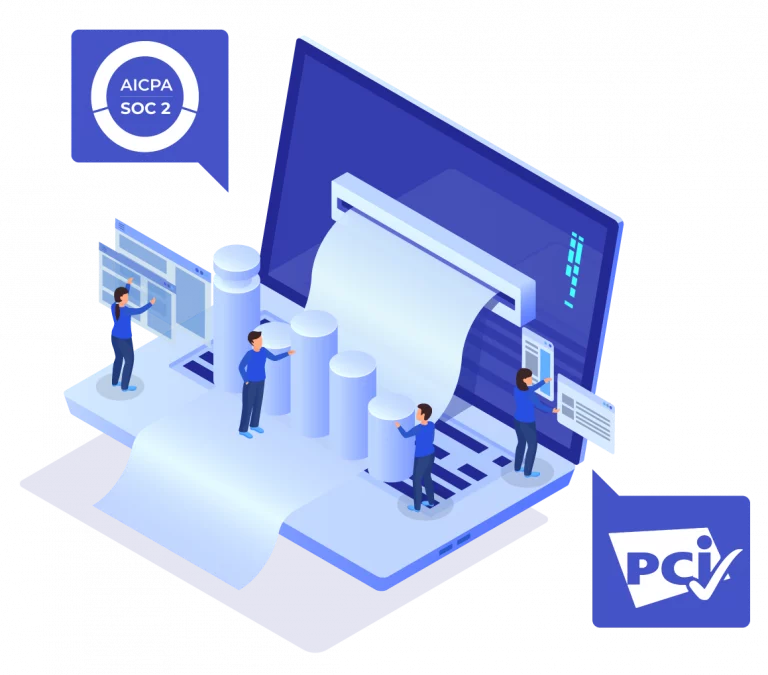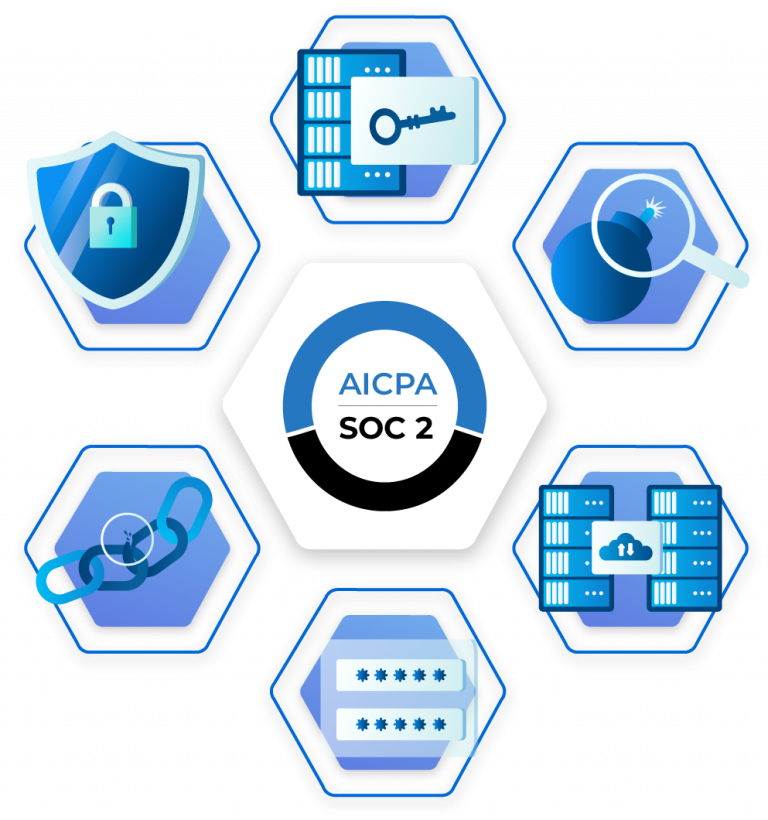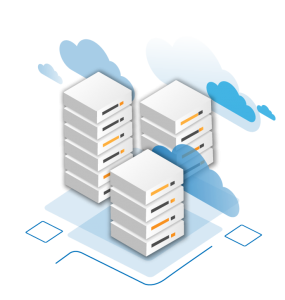DevOps Financial Services
- We help you adopt the latest technologies and modern software delivery practices

DevOps For Fintech
Can support a wide variety of financial businesses

Business Analytics

Insurance

Capital markets
fintech devops
DevOps Financial Services for digital applications
Watch our webinar series where you’ll learn essential topics about DevOps Financial Services.
- DevOps toolchain for Fintech
- AWS Services for Fintech
- DevOps benefits for Fintech

- DevOps Financial Services
What is SOC2 and what is it required to get compliant?
SOC2 is an international standard and auditing procedure that establishes the basic security, confidentiality availability, privacy, and integrity criteria for storing and managing the information that Fintech gets from its customers.
Once a Financial Company gets compliant with SOC2, it is ready to offer top-level security for its customers and their sensitive financial information. This way, customers are confident that their data won’t be compromised or lost due to attacks or hacking.
- devops benefits for your Fintech Company
Operational Benefits
- Better security and protection.
- Faster releases to market.
- Overall cost optimization.
- Potential to scale as desired.
- Optimization of businesses processes.
Business Benefits
- Cost savings.
- Bigger revenues.
- Business growth.
- Customer satisfaction.
- Reliability on your business.
- Get the Free Case Study
The DevOps approach of a financial application on AWS
This Ebook covers the best approach of DevOps financial services, which allowed credit applicants to get an easier, and more transparent contact with commercial lenders. In this resource you will find a web-based Laravel application which is now hosted on AWS with the capacity to be launched in different availability zones.
Tools & technologies that we can enable on
your Fintech business to potentialize it
Containerization
- Isolate your application from attack
- Split your app components and be prepared for emergencies
Failover
- Scale your application according to the demand levell
- Have your backup cloud resources in case of disaster
DevSecOps
- Secure all the steps of your development cycle
- Remove the security breaches on your release process
Monitoring and Maintenance
- Have a constant vision on what's happening in your application and cloud
- Get real-time reports on issues and downtimes
Serverless
- Automate tasks and optimize your operations with no servers required
- Speed up your app tasks, jobs, and functions for better business performance at low costs
Big Data
- Make your database and application stronger for attending your demand
- Improve the user experience with faster consults
What is DevSecOps and what does it imply?
DevSecOps is the philosophy that focuses on applying total security on each of the development phases, from coding to deployment.
By using DevSecOps, development companies ensure that every code release and every coding phase are free from vulnerabilities or risks and up to date on the latest security standards.

DevSecOps has gained much popularity in the last years since the security requirements of software businesses have increased due to the continually changing risks on the cloud. Also, DevSecOps helps software businesses to involve Development teams in the security assurance for the final products and not leaving this task to Operations teams only.
DevSecOps involves the automation of test cases, the implementation of CI/CD pipelines, and vulnerability scan tools such as Snyk and Sonarqube, among some other essential items. These tasks help you get the necessary security on your code while adding efficiency to your release process.
PARTNER WITH US
Why Choose ClickIT?
We are the #1 IT outsourcing company in Mexico. Providing DevOps Services and Software Development, we help companies of all sizes in Healthcare, Fintech, and MarTech. Our superior solutions are focused on DevOps, Cloud Migrations, Continuous Delivery, DevSecOps, Microservices, and AWS Managed Services.
DevOps Financial Services FAQ
Have any more Question?
Don´t be shy and ask any questions you have
DevOps is a software engineering practice that creates collaboration between development and operational teams during the entire software development lifecycle to deliver services faster.







